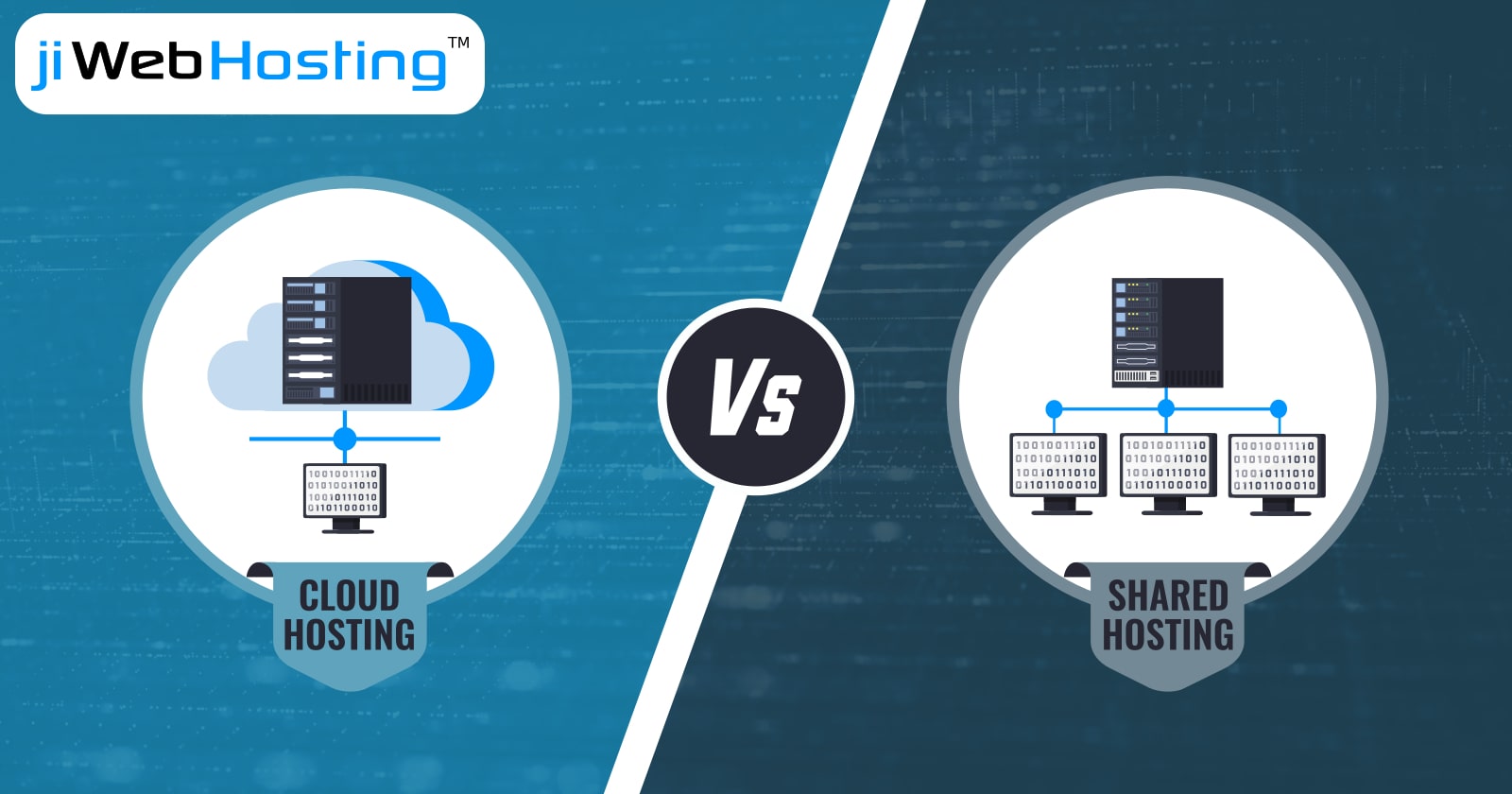When the time comes to select where to host your website you’re going to have an array of options at your disposal. Apart from deciding which company to host with, you’ll also have to decide what kind of hosting package suits you best.
In the past years, it was common for companies to start off on a shared Linux server and then upgrade to a dedicated server for supporting and rising web traffic when the site gets developing. But Nowadays there is a new epitome of cloud hosting; this means businesses don’t require to follow the conventional path.
With increasing competition, you need to have a proper functioning website live on the Internet. Therefore, you need to choose the best hosting server for your company.
But How Do You Select The Right Kind Of Hosting For Your Business?
Difference Between Shared Hosting VS. Cloud Hosting
When we talk about cloud hosting and shared hosting, there are three things that these two have in common- servers, websites and Web Hosting Providers. Unfortunately, this is as far as the similarity goes.
Here we will discuss differences between the two most common hosting choices i.e. cloud hosting and shared hosting. Remember there’s no perfect choice for everyone; decide according to your requirements of the website.
Let’s Jump in!
What is Shared Hosting?
Shared hosting is a type of web hosting in which there is a single server for multiple websites. Generally, you don’t have any information about what type of websites you are sharing the resources with. However, it is the cheapest way to create your business online presence but not the best option for websites having high traffic.
Advantages
- Create an excellent quality website and online presence within a budget.
- Multiple email accounts with your domain name and option to have more than one database.
- Don’t require any technical knowledge because the service provider takes care of maintenance and administration chores.
- User-friendy interfaces with cPanel that are designed in the way to make website management easy.
What is Cloud Hosting?
Cloud hosting is one of the emerging technologies that have achieved new levels of popularity around the globe. This high-tech basically takes accounts of sharing multiple network servers and delegate a dedicated webspace to the users to execute data storage, load dissemination, and protection management.
Advantages
- Intuitive website management portal that permits you view your site’s performance online.
- It gives the flexibility to scale up speedily and deal with unexpected traffic surges. You can even create an infrastructure to manage your future requirements.
- No need to buy and maintain your own hardware, thus reducing capital expenditure.
- It can easily backup data if any disaster takes place.
Key Differences Between Shared Webhosting And Cloud Hosting
1. Security
It makes no difference in which hosting you use, security mainly relies on tuning and configuration. In shared hosting, there are more chances of vulnerable risks and cyber-attacks from hackers. The reason behind that after hackers get access, it’s easier for them to access other websites.
On the other hand, cloud hosting gives access to users so that they can secure their data and privacy. Moreover, if there is any hardware issue, the hosting provider will migrate your site to the stable server. Four major controls follow the architecture of cloud hosting security:
- Detective controls
- Corrective controls
- Preventative controls
- Deterrent controls
2. Performance
With cloud hosting, you can have ultra-fast, customizable platform and auto-scalability. For illustration, if your website has high traffic, the site doesn’t get budge. In fact, cloud hosting is best for high traffic sites. Whereas in shared hosting, there are custom built and SSD servers, resources are limited that impedes speed. Moreover, you have to face problems such as constant downtimes and outages.
Overall, we can say that cloud hosting has more resources at the client’s disposal that offers them the ability to perform in the best possible way.
3. Speed
One main problem with the shared hosting provider is that server powering shared hosting doesn’t have enough space. If any website gets an unexpected influx of traffic, all other sites are disturbed with the slow speed which results in terrible load times. To resolve this issue, the user has to wait to resume their regular online presence.
When it comes to cloud hosting, there is enough availability of resources that help users to keep the website running at an optimum speed. Servers that are running on the cloud hosting allocates all their resources to a single website: yours! Whenever any hardware problem is detected, your site doesn’t get stuck in the nonfunctional server.
The Final Words
The points discussed above reveal that cloud hosting and shared web hosting are geared towards two different customer bases. Thus, cloud hosting is the first choice for anyone who wants the server with maximum liberty and ready to invest money for better results. For customers with fewer budgets and startup business, shared hosting has proven to perfect a solution if performance and server administration are not the main concern.
Whatever options you opt, do some research work and make your final decision that corresponds to your requirements, control preferences and budget.
Now you want to know which is better for your business- shared hosting or cloud hosting. One web hosting provider that will never go wrong with whatever you choose is jiWebHosting. Our professional team has put a lot of effort to refine these services and provide you high-performance hosting on every plan.

















































Share this post on: